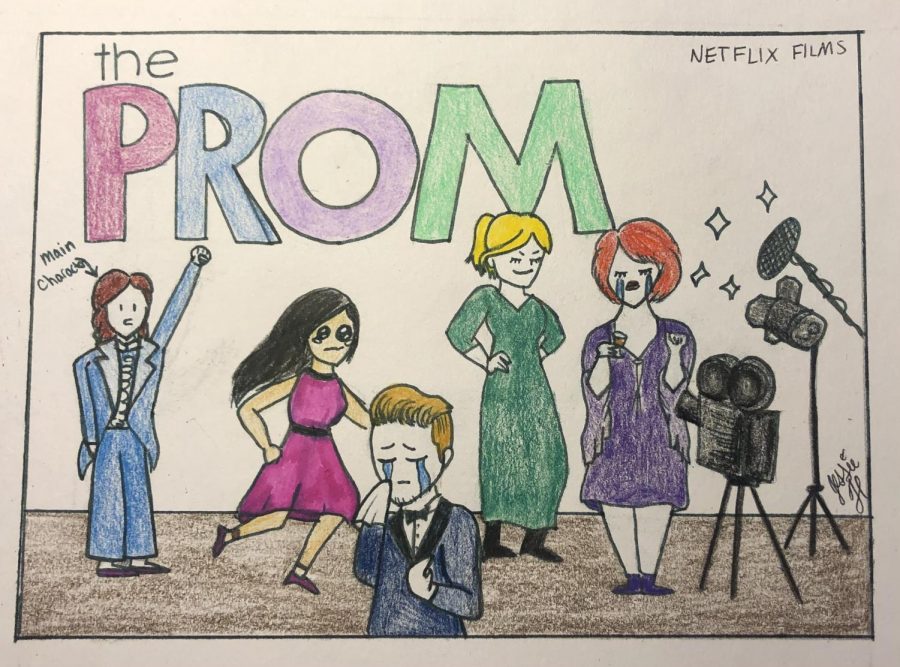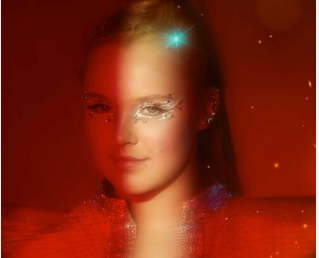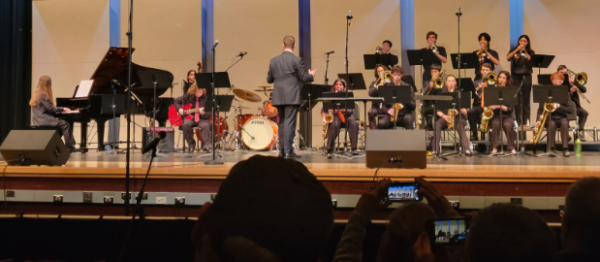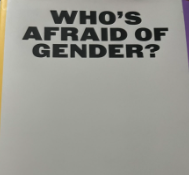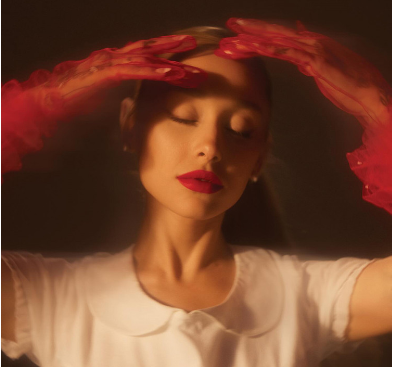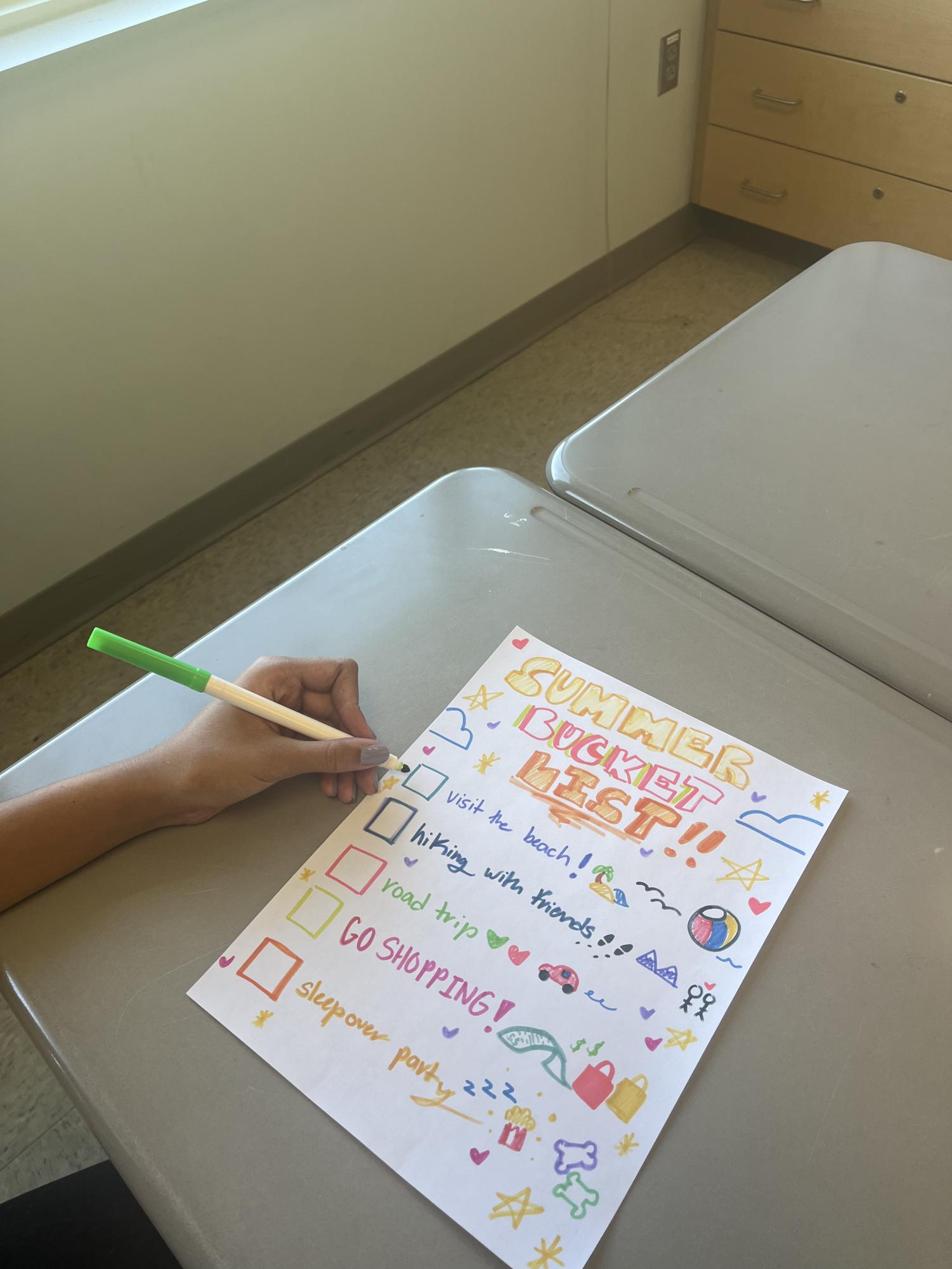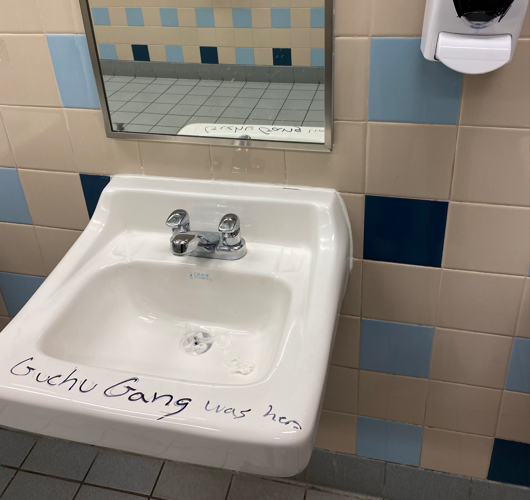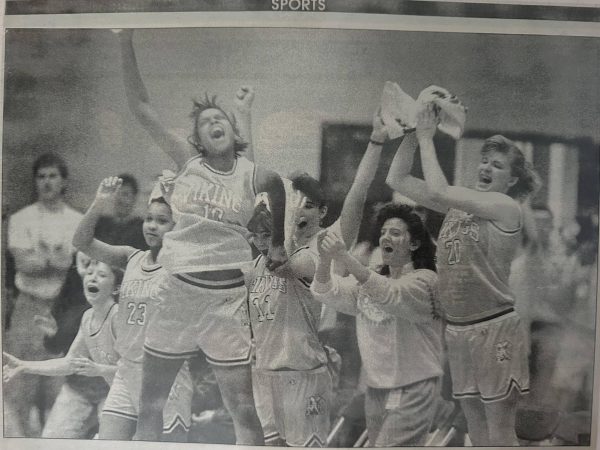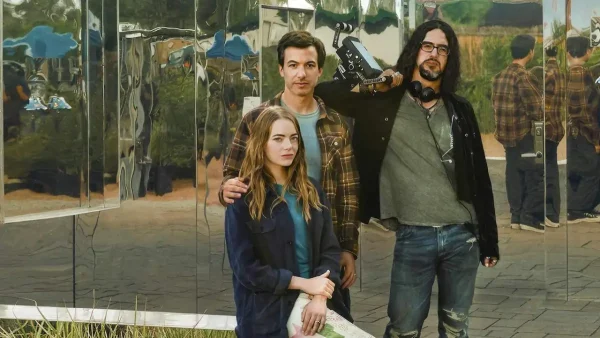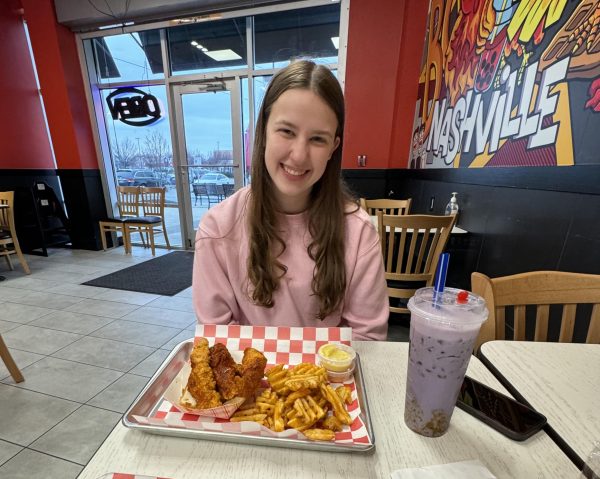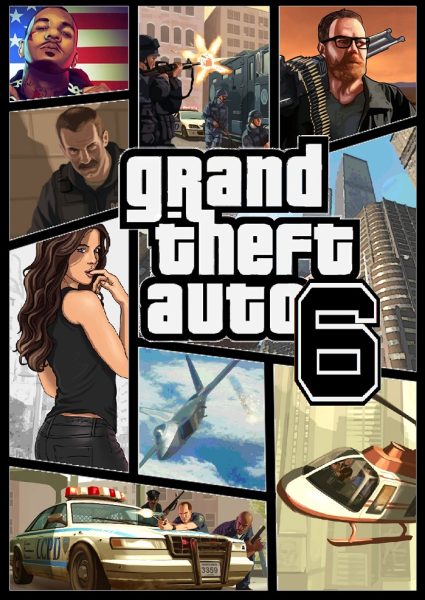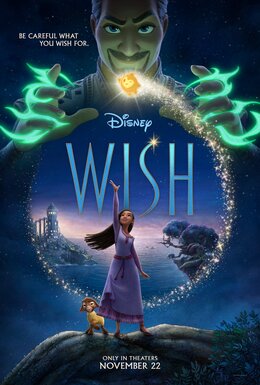The Prom (2020): When will LGBTQ+ issues become more than a plot point?
Emma Nolan, the main character, stands off from the crowd alone as the rest of the group takes all the glory
Overpriced dress? CHECK.
Hair styled? CHECK.
Prom-posal poster? CHECK.
Code for Google Meet prom? CHECK.
FCPS has announced that there will be no proms held this year due to COVID-19 restrictions. This is understandably upsetting, considering that many students have dreamed about going to this event for years.
A movie adaption of the musical, The Prom showcases a student getting her entire prom canceled, but for a reason not many people would think.
Apparently, “being gay” can get prom canceled just as fast as COVID-19 can.
The plot revolves around Emma Nolan (Jo Ellen Pellmen), a junior at James Madison High who is denied a ticket for her school’s prom because she wants to bring another girl as a date. In the movie, this results in the PTA canceling the school’s entire prom because they refuse to have an all inclusive prom. In the plot of the film, the cancellation goes viral.
Although this movie is fictional, I don’t think it’s far from reality.
Hungry for publicity, two washed up actors take up the cause. The plot thickens as it shows more screen time of the narcissistic Broadway stars, Dee Dee Allen (Meryl Streep) and Barry Glickman (James Corden), who only see Emma’s cause as a PR stunt to help rebrand them after their first show of Eleanor Roosevelt: The Musical closes on opening night.
This movie was supposed to be about Emma’s rights as an LGBTQ+ person being stripped, but it feels as if the “side” characters steal the show. That’s a shame because the discrimination against LGBTQ+ people is a critical issue–it isn’t a comedy.
The Prom dropped on Netflix a few months ago. The movie was directed by Ryan Murphy, who also directed the highly popular Glee. So, there was already high expectations for this movie. It definitely cover’s LGBTQ+ representation, but lacks the story behind the main LGBTQ+ character.
Who is Emma Nolan?
The main character, Emma Nolan, first appears in the opening scene showing a PTA meeting, where the parents are voting on having an all-inclusive prom. No one is in favor of that, so the entire event is declared canceled and it’s all Emma’s fault.
The movie IMMEDIATELY cuts to Dee Dee Allen and Barry Glickman’s red carpet walk after the debut of their musical, and their egos inflate and deflate all in twelve minutes.
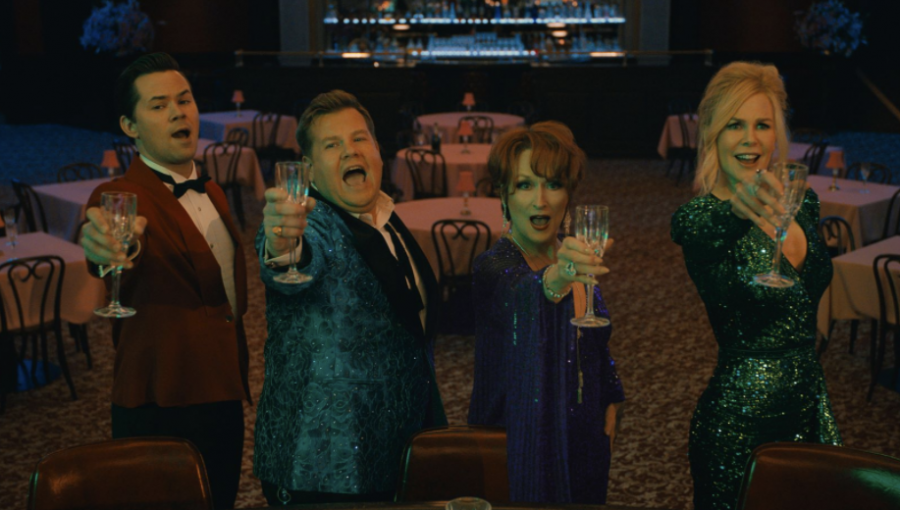
Finally, the movie goes back to Emma at school, if the audience hasn’t forgotten about her already.
Emma sings a song to introduce herself and all it tells us is that she’s sort of bullied at school and she simply tells herself to “breathe” when people try to get under her skin. This is one of two songs Emma sings by herself, “Just Breathe” and another one that is important later on.
It’s about Emma Nolan but it’s also not about Emma Nolan
I think Emma’s character is so bland because other characters outshine her. There’s nothing special about her other than being gay. Yes, she does have a sad backstory of being disowned by her parents and kicked out of her house at 16. She now lives with her grandmother.
However, Emma doesn’t even reveal her own backstory in her own way. The fact that her past is revealed by other characters continues to take away her identity.
The first time is when Principal Hawkins (Keegan Michael Key) says, “Emma is a strong girl. Even before the prom controversy. When she came out to her parents, well, they threw her out of the house. She was 16.”
I am confident that our principal would not share personal information with a stranger–it just feels to Hollywood and insensitive to the frightening reality of life in the queer community.
Lesley University, a college devoted to training counselors and teaching “the human arts,” reports that “1 in 4 teens are forced to leave their homes after coming out to their parents.”
It is extremely upsetting that there will always be a chance of LGBTQ+ teens coming out and then getting kicked out from a place they are supposed to feel safe in. This movie does not touch base on that or the severity of this problem.
Principal Hawkins is talking to Dee Dee when this happens and he obviously cares for Emma deeply, but was this something that he had permission to share? That question is still unanswered considering it happened again with Emma’s Grandma, Grandma Bea (Mary Kay Place).
Emma is getting ready for the real prom that was rescheduled to let Emma attend (this happens about 20 minutes into a 2-hour movie so it gives the viewer a gut feeling that something really bad is going to happen).
Barry and Grandma Bea are chatting while Emma is getting dressed. Barry decides to ask more about Emma’s past.
Grandma Bea says, “You’re not a mother so you can’t know what it’s like to see your own daughter give up her child.” Although Grandma Bea is very accepting of Emma, I don’t understand why she would make this moment, Emma’s moment, about herself.
Barry follows by making a toast, “To bad parents and their broken progeny.” Grandma Bea tries to calm the situation by saying Emma has come through and is going to be okay.
However, Barry says, “Oh I wasn’t talking about her.” He then talks about himself and explains that he also came out at 16 but ran away from home before his parents could officially kick him out.
Although this conversation had turned from Emma to Barry, it is clear Barry empathizes. Despite that, it just feels wrong that both Bea and Barry reveal their pasts overshadowing trying to be their best for Emma.
Every single character besides Emma gets at least one scene that makes them more fledged out. At least they each got to tell their own backstory and gain sympathy from the viewers. Emma doesn’t receive the same sympathy.
There are many characters that upstage Emma. If only she was able to have a few more songs for herself, then maybe we would be able to get to know her more.
The positives
Emma does start making her own decisions.
One plot element I applaud is the relationship between Emma and her secret girlfriend, Alyssa (Ariana DeBose). They break up because Alyssa is too afraid to make their relationship public
When this happened, I gained respect for Emma. If the directors kept the relationship broken up, I would’ve been fine with this. To me, that’s okay.
Dating someone in the closet is hard. If one person in the couple needs more affection or team effort than the other can give, then it’s totally okay to break up the relationship.
I believe you can’t make your significant other come out. Every individual has to arrive at that destiny in their own way. Giving that person time to become more comfortable with themselves is most important, even if you love them.
The movie has its bright moments, and Emma is her own person by the end, but it takes a long time to get there.
The Broadway crew wants Emma to tell her story to millions.
Emma does it “her way” by going live on YouTube and singing a song she wrote called “Unruly Heart” for all the people who love someone in a way the world just doesn’t understand.
Seeing all the other LGBTQ+ kids smiling and crying tears of joy because they can relate to Emma definitely pulls some heart strings. It makes you think about how many marginalized people have to go through harassment and bullying as part of their existence every day.
A mental health survey done in 2020 by the Trevor Project says that “1 in 3 LGBTQ+ youth have been physically threatened or harmed in their lifetime due to their identity.”
Beyond the plot: No memorable music
I didn’t really find the music to be all that great. All of it sounded the same to me, not gonna lie, and I can’t remember a single song from that movie.
I liked Dee Dee Allen’s entrance song to the PTA meeting (to cause trouble) called,“It’s Not About Me.” It is more of a swing genre of music rather than the classic theater show tune.
I also liked Angie’s song “Zazz” because it has strong-women-empowerment vibes.
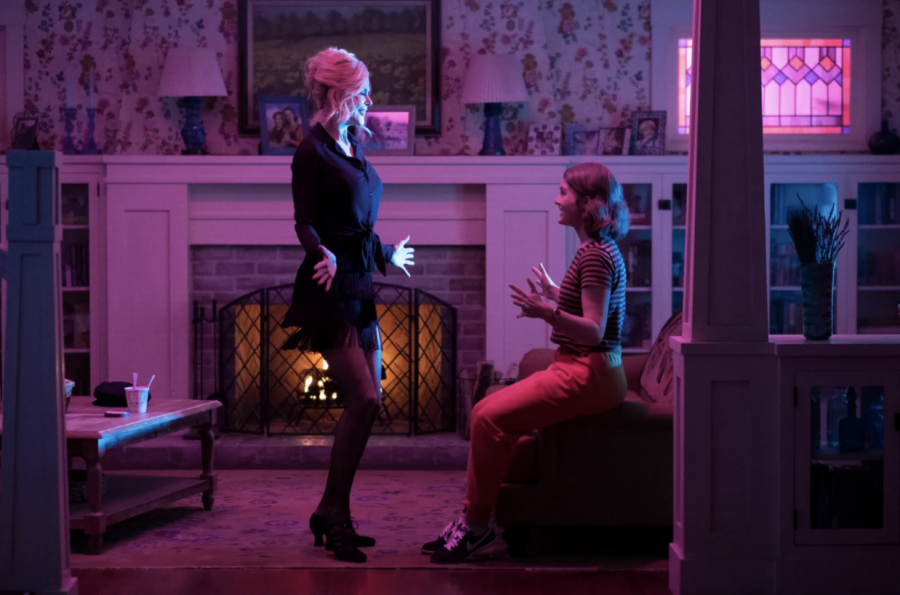
Another problem is that each song feels six years long.
I enjoyed the of symbolism in the way that Emma wore a dress to the school prom, but a tux to her own prom where she was able to be herself.
The other characters wore flashy outfits because they think that they are what they wear: Rich and eye-catching.
So What?
In the end, if you are not a musical lover, you will not like this film. The music is very overpowering and each song has an excruciating long run-time.
On the bright side, you will never remember a lyric from any song in the movie.
Besides that, if you are trying to find a cool LGBTQ+ movie to watch, this does the job but it’s the bare minimum–kind of like a Zoom Prom would be.
Your donation will support the student journalists of Linganore High School. Your contribution will allow us to purchase camera/recording equipment and software. We hope to raise enough money to re-start a monthly printed issue of our paper.


